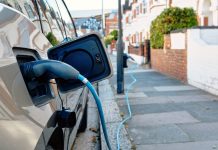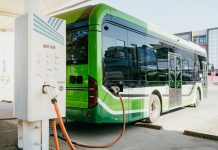Making smarter decisions to improve work efficiency is a vital aspect of any business: vehicle tracking tools that enable those decisions are becoming increasingly valuable
The use of vehicle tracking to provide real-time data and feedback on commercial fleet’s operational efficiency is one-way businesses are making smarter decisions.
Fleet operators have seen clear benefits from utilising telematics in areas such as workforce efficiency, fuel and maintenance costs, driver safety and business sustainability. In the case of sustainability, the benefits to business can be wide-ranging. Not only will a business see reductions in costs, but the public perception of that businesses as one that is committed to improving the environment will differentiate their operations from others.
Operating a business that runs a commercial fleet of vehicles does pose a challenge when looking at improving sustainability and reducing emissions contributing to climate change. Fleet management systems such as vehicle tracking software allow businesses to monitor key areas like fuel usage and ultimately provide data which can be used in helping business become more sustainable.
How can businesses set sustainability targets?
As stated earlier, the public awareness of businesses and how they aim to improve their environmental impact on the planet has never been higher. It is therefore essential to have sustainability targets as a business, but these targets need to be achievable. Therefore, considerations need to be made with regards to; the age of vehicles in a fleet, the driving patterns of vehicles, the impact of vehicle breakdowns and services, along with what task each vehicle in a fleet performs.
Having these key points defined before setting a sustainability target allows the business to collect the relevant data and therefore allow for better planning to reach the targets that have been set. It is important to remember however that improving sustainability and reducing a company’s environmental impact is not a short-term project, but a long-term goal. Having small milestones along a timeline provides targets which can be achieved by focussing on specific areas and allowing businesses to track its improvement over time.
Improving driver behaviour can have a wide-reaching impact
Monitoring driver behaviour with vehicle tracking tools can improve not only individual driving but the sustainability of the business as a whole. Installing this hardware allows fleet managers to track harmful or dangerous driving such as speeding or harsh breaking or accelerating. All of the data collected can then be used by managers to inform decisions made about businesses sustainability targets.
Some telematics companies also provide in-cab coaching devices which alert drivers in real-time about their driving behaviour which their managers have deemed unsafe. The in-cab coach has proven to reduce speed, and this has led to businesses seeing an improvement in driving style, road safety and running costs.
UK government research has directly linked driving above the speed limit to increased risk on the road and also an increase in the severity of accidents. Higher speeds mean drivers have less time to react to hazards on the road and speeding is still the leading cause of fatalities on UK roads. It is therefore essential to implement preventative measures to minimise the risk not only to the businesses commercial fleet drivers but other road users.
Along with reducing incidents on the road, a reduction in speed also provides improved fuel efficiency. Vehicles miles per gallon is dramatically affected based on the speed of the vehicle. For example, vehicles were found to be 3% less efficient at 60mph but a staggering 28% less efficient at 80mph.
GPS technology can aid in improving sustainability
The implementation of GPS technology can allow fleet managers to better plan route structures and schedules. As a result, more efficient routes taken by drivers means less fuel usage and less time taken for deliveries or meeting appointments and as such an overall reduction in fleet mileage.
Another area this can impact is the time vehicles spend idling. This is when a vehicle is stationary, at a red light for example, but the engine is still running and as such using fuel. Utilising GPS technology allows fleet managers to pinpoint areas where this often happens and plan new routes to avoid problem areas. This also contributes to the lowering of fuel usage.
It is important to remember that vehicle type, age and size can all impact fuel usage and as such the sustainability targets of a business. This specific information about each commercial vehicle should be taken into account to better evaluate businesses success in achieving its sustainability target.
For businesses that rely on fleet management and have implemented GPS tracking devices and in-cab coaching systems the advantages it provides can be invaluable. In areas of reducing fuel coast, improving sustainability by lowering CO2 emissions and improving driver behaviour. Fleet management systems not only help businesses but help the wider population of road users as a whole.











